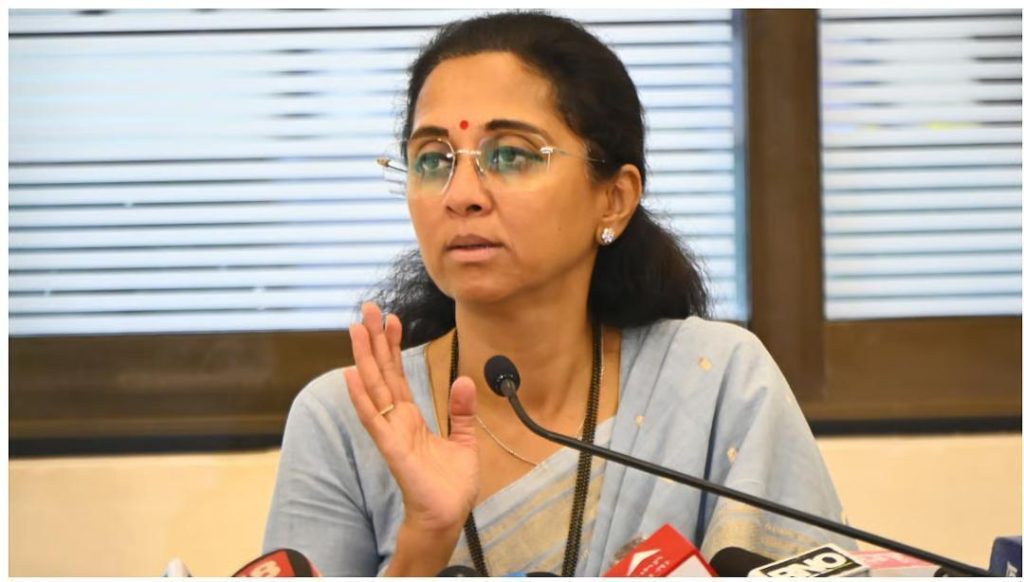
Title: Maha govt should clarify what 3rd-language policy really is: Sule
The recent move by the Maharashtra government to make Hindi the third language in schools has sparked controversy and raised several questions. The government resolution outlining Hindi as the third language has left many in the dark, and one of the prominent leaders, Supriya Sule, has urged the government to clarify its stance on the issue.
Supriya Sule, the leader of the Nationalist Congress Party (NCP) and the Social Justice and Special Assistance (SC/ST) Cell, has demanded that the Maharashtra government hold a proper press conference and make a clarification on what the policy really is. She expressed her concerns on Thursday, stating that there is no clarity on the policy, and it is essential for the government to come clean on the issue.
The debate surrounding the introduction of Hindi as a third language in schools has been ongoing for some time. While some argue that it will help to promote national unity and facilitate communication among people from different regions, others are concerned that it will lead to the dilution of regional languages and cultural heritage.
The government resolution outlining Hindi as the third language was passed recently, and it has been met with mixed reactions. Some have welcomed the move, while others have expressed their concerns and opposition to it. The debate has taken a political turn, with various parties and leaders weighing in on the issue.
Supriya Sule, who is known for her strong views on social and political issues, has been vocal about her opposition to the introduction of Hindi as a third language. She has argued that the move is not in the best interest of the people of Maharashtra and that it will lead to the alienation of the local population.
The opposition to the introduction of Hindi as a third language is not limited to Supriya Sule alone. Many experts and scholars have also expressed their concerns about the move. They argue that it will lead to the dilution of regional languages and cultural heritage, and that it will not serve any useful purpose.
In fact, many have argued that the move is a part of a larger scheme to impose Hindi on the people of India. They point out that the Central government has been pushing for the promotion of Hindi and other so-called “national languages” at the expense of regional languages.
The debate surrounding the introduction of Hindi as a third language in schools is not new. It has been a contentious issue for many years, and it has been discussed and debated by various experts and scholars. The debate has taken a political turn in recent times, with various parties and leaders weighing in on the issue.
The Maharashtra government has been under pressure to clarify its stance on the issue, and Supriya Sule’s demands for a clarification are likely to add to the pressure. The government has been accused of not being transparent about its plans and intentions, and many are calling for greater clarity on the issue.
In fact, the government’s decision to introduce Hindi as a third language has been met with widespread criticism from various quarters. Many have argued that it is a move aimed at promoting Hindi and other so-called “national languages” at the expense of regional languages.
The opposition to the introduction of Hindi as a third language is not limited to Maharashtra alone. Many other states have also expressed their opposition to the move, and there are concerns that it will lead to the dilution of regional languages and cultural heritage.
In conclusion, the debate surrounding the introduction of Hindi as a third language in schools is a contentious issue that has sparked widespread controversy and debate. The government’s decision to introduce Hindi as a third language has been met with widespread criticism, and many are calling for greater clarity on the issue.
Supriya Sule’s demands for a clarification on the policy are likely to add to the pressure on the government to come clean on the issue. The government must take a clear stance on the issue and clarify its plans and intentions. Only then can the people of Maharashtra and other states have a better understanding of what the policy really is and what it means for them.






